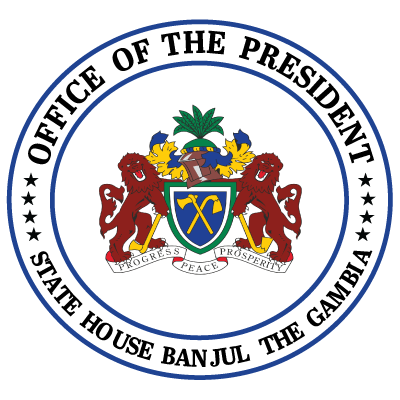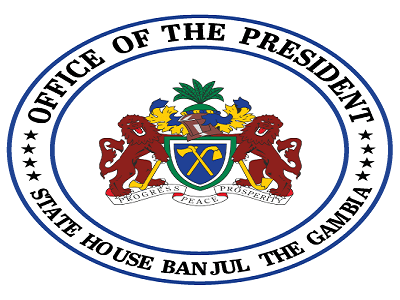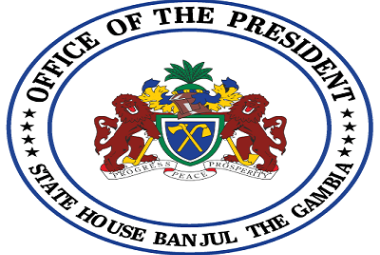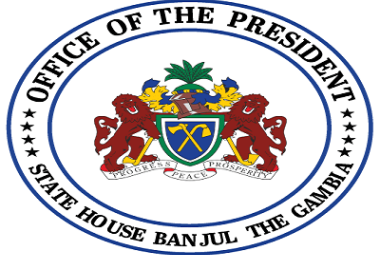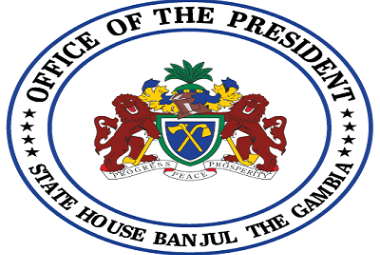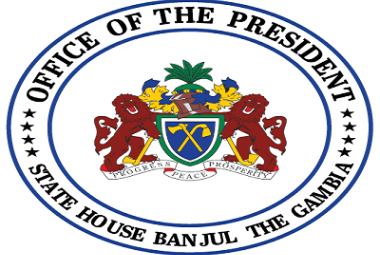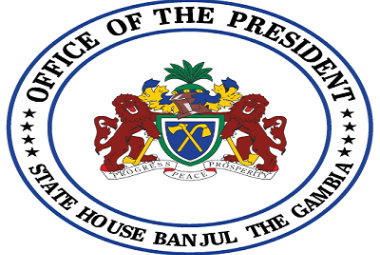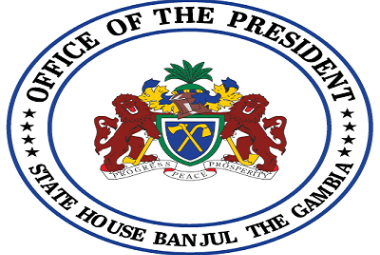State House, Banjul, 20th July 2023: The National Economic Council, led by President Adama Barrow, met on Wednesday, 19th July, to review the state of the economy with economic players across the public institutions.
The July meeting discussed updates from the Central Bank of The Gambia, The Gambia Revenue Authority - GRA, The Gambia Investment & Export Promotion Agency –GIEPA, the Ministries of Trade, Finance, the Accountant General Department, Agriculture and Tourism.
In its update, the Central Bank informed the Council that the global economic outlook experienced a moderate recovery, and inflation declined in the forecast from 7 per cent to just over 4% next year. Meanwhile, the commodity price index for food prices recorded by FAO indicated a decline. The cost of primary commodities such as cereal, sugar, and oil experienced a 1.7% decline in June from May this year.
At the domestic level, the CBG maintains a forward-looking policy to pre-empt and avert high inflation. The Dalasi exchange rate against international currencies such as the CFA, US Dollar, GB pound and the Euro remains stable.
On remittances, the inflows are steady, helping to stabilise the currency. However, a slight increase in the outflow of remittances has also been recorded for June.
Reports indicated that there is enough rice in the country, and the Food Safety and Quality Authority of The Gambia -FSQA (formerly GGC) should sell it at a retail level to make it accessible to the average Gambian. The economic players also continue to consult with the business community, including millers and bakers, to monitor supplies and availability of flour. It was reported that a marketing platform, Jokalenteh, was initiated to connect women enterprises and others around the country to boost supply and demand.
Despite the COVID support, the Central Bank reported the national reserves to stand at four months of import cover for goods and services.
The Ministry of Finance also reported on the Africa50 asset-recycling programme for domestic resource mobilisation to finance infrastructure projects such as roads.
GRA reported a 15% increase above its target in June due to the positive turnaround in the use of technology, which strengthened its work and increased the capacity of its staff. However, the domestic tax shortfall of its target was still higher in June 2022. The removal of subsidies has also reflected in the tax collection in June.
The Council also discussed progress in the duty waiver management, which now requires the presentation of documentation, including a bill of lading and packing list, compliance with other tax payments and spot-checking.
On the progress registered at the Basse and Fatato bridges, the Accountant General reported they are working with NAWEC to erect poles and connect to the main electricity grid, as the rainy season affects its current energy source.
The AGD has also submitted its 2021 financial report to the National Audit Office and is working on the 2022 report. Concurrently, it also prepares an Assets Management Policy for Cabinet’s review and other policy initiatives.
GIEPA reported that the National Environment Agency embarked on an Environmental and Social Impact Assessment – ESIA for identified sites for investments. Also, it is currently working on new investments and identifying industrial zones in various parts of the country. Three commercial farmers have already been identified to promote commercial rice cultivation geared towards the government’s food security endeavour.
The Ministry of Trade reported the arrival of the first batch of Cashew caravan from Guinea Bissau—Meanwhile, the President has Assented to the Labour Act 2023.
The Ministry of Agriculture reported on the forecast rain pattern this year, which is expected to be normal. As one-third of the country’s GDP is from agriculture, there was a proposal for the government to look into alternative means of sourcing water to avert the pattern of droughts that have been recorded periodically. The Council also discussed fertiliser availability and encouraged farmers to produce high-yield rice varieties.
The Tourism Ministry updated on arrivals, exploring new markets in the sub-region and maintaining its traditional market.
The Economic Council meeting also provides an opportunity to review and address multi-sectoral issues and get technical guidance, thus avoiding delays and increasing efficiency in the governance processes.
